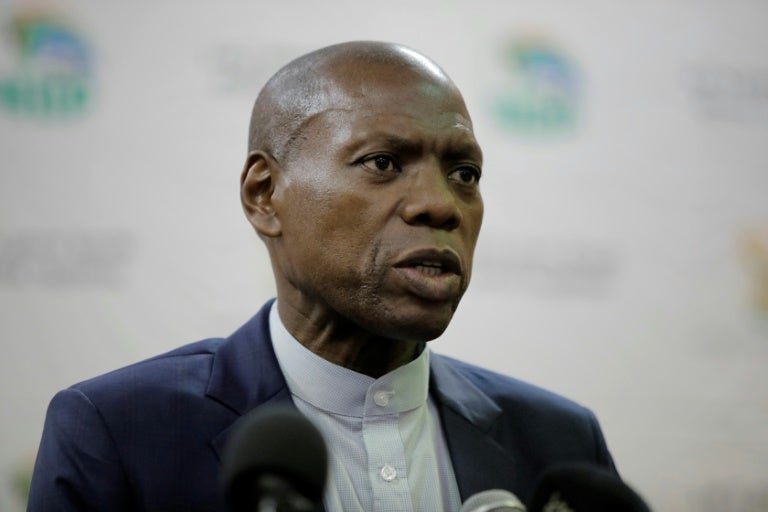
Health Minister Dr Zweli Mkhize has remembered the more than 50,000 people who have lost their lives to Covid-19 during a webinar on 4 March 2021 hosted by the National Press Club and the GCIS. Picture: AFP/File/GUILLEM SARTORIO
The Eastern Cape’s Covid-19 hotspots will be divided into sub-districts to better manage the fight against the pandemic through regional responses in the “vulnerable” province, the national Department of Health said on Sunday.
This after Health Minister Zweli Mkhize said he would visit the province this week to assess health facilities.
In a media statement on Sunday night, he said after completing a trip to the Western Cape, which has 65% of all national cases, the department was now turning its attention to the Eastern Cape.
“The hotspot strategy is to facilitate a strong community-based response… Decentralisation is particularly important for rural areas to ensure they are adequately capacitated and empowered to successfully manage the epidemic locally,” the department said.
“The Eastern Cape has similar numbers to Gauteng but it has recorded the second highest mortality numbers and its proximity and interconnectedness with the Western Cape makes the province especially vulnerable.
“In addition, there is an increase in infection rates among healthcare workers both in the public and private sectors. As of 6 June, the Eastern Cape had recorded 258 Covid-19 positive healthcare workers and 14 Covid-19-related deaths.”
A team of 20 Cuban doctors and 840 additional nurses have been employed to fight the pandemic in the province.
The department also sent a team of experts to the Eastern Cape in April comprising Wayne Ramkrishna, an expert in malaria, vector-borne and zoonotic diseases as well as Dr Kerrigan McCarthy, Mzimasi Neti and Darren Muganhiri from the National Institute for Communicable Diseases (NCID).
“The team members from the NICD worked with the contact tracing and community screening teams while Mr Ramkrishna worked with the Finance, Clinical Management, Infection Prevention and Control as well as the Occupational Health and Safety team to assess the PPE [personal protection equipment] needs in the Eastern Cape,” it said.
In early-May, the province had just four weeks’ worth of PPE stock – and this was being addressed.
The Eastern Cape was also addressing its testing backlog.
“In Port Elizabeth, the backlog has been reduced from 13 000 to 5 106 and by Monday it should be around 4 000 then by next week completely cleared. Heat lysis extraction of RNA has been a key innovation to increase turnover. Another machine is being sent to Port Elizabeth.”
In Umtata, the backlog is currently at 8,000 – and the department hoped this would be cleared in “the next few weeks”.
As reported to President Cyril Ramaphosa last week, the Western and Eastern Cape provincial governments are collaborating closely to test essential seasonal workers who travel between the provinces.
For more news your way, download The Citizen’s app for iOS and Android.
Download our app